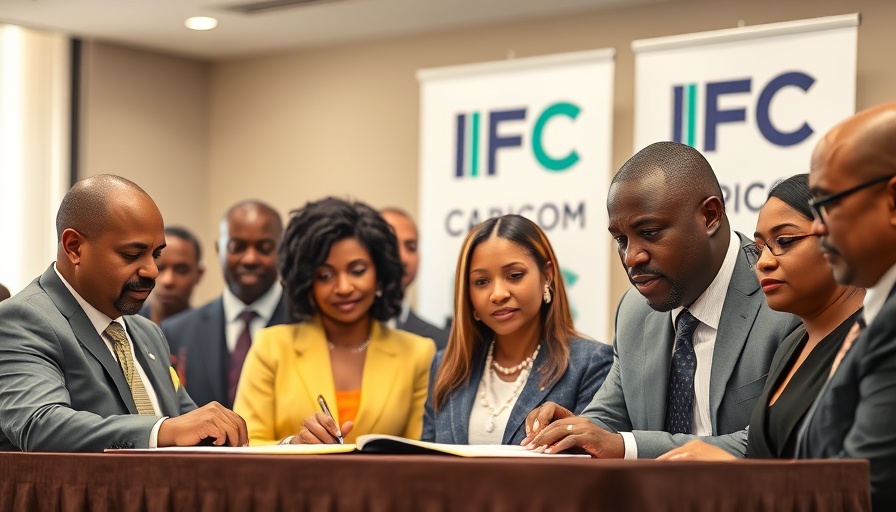
The Shift Towards Green Investments in the Caribbean
The Caribbean is taking significant steps to safeguard its future through green finance initiatives. Recent partnerships between the International Finance Corporation (IFC) and the CARICOM Committee of Central Bank Governors promise to revolutionize the way investments are made across the region. With the increasing threat of climate change, this collaboration aims to develop a comprehensive taxonomy that defines green assets and encourages investment in environmentally friendly projects.
Why Green Finance Matters
Despite contributing less than 1% to global greenhouse gas emissions, Caribbean nations are among the most affected by climate change. The challenges posed by rising sea levels, hurricanes, and extreme weather events emphasize a need for a resilient economic strategy. The new green finance guidelines are expected to provide local banks and investors with a clearer framework, enabling them to support the development of projects aimed at climate adaptation and mitigation. This economic paradigm shift is vital not only for environmental health but also for long-term economic stability.
The Financial Risks of Climate Change
Currently, the Caribbean faces a staggering estimated climate finance gap of nearly $55 billion by 2030. This discrepancy underscores the necessity for robust private sector engagement and innovative financing solutions to address fundamental issues like infrastructure resilience. By developing actionable green finance guidelines, stakeholders can help close this gap and stimulate job creation in sectors such as renewable energy and eco-friendly tourism.
Engaging the Right Stakeholders
The implementation of this green finance taxonomy isn't just a project for governments and financial institutions; it involves engaging a variety of stakeholders, including local communities and environmental organizations. This inclusive approach ensures that the taxonomy aligns with local needs and best practices. Key stakeholders will have an active role in shaping the guidelines, which in turn will foster a sense of ownership and commitment to sustainable practices within their communities.
A Roadmap for the Future
Through this collaboration, the Caribbean aims to create an ecosystem for green finance that not only prioritizes businesses that adhere to environmental standards but also promotes transparency and accountability in how funds are allocated. As Dr. Kevin Greenidge, Governor of the Central Bank of Barbados, comments, this initiative is pivotal for building a sustainable economic future that respects the delicate balance of Caribbean ecosystems.
What’s Next?
This partnership marks the beginning of an active commitment to green investment across the Caribbean. With an evolving framework in place, the region stands to attract investment, build better infrastructure, and forge global partnerships with countries and companies looking for sustainable project opportunities. It's a decisive moment to take action on climate change—one where every stakeholder can contribute to a greener, more resilient Caribbean.
 Add Row
Add Row  Add
Add 




Write A Comment